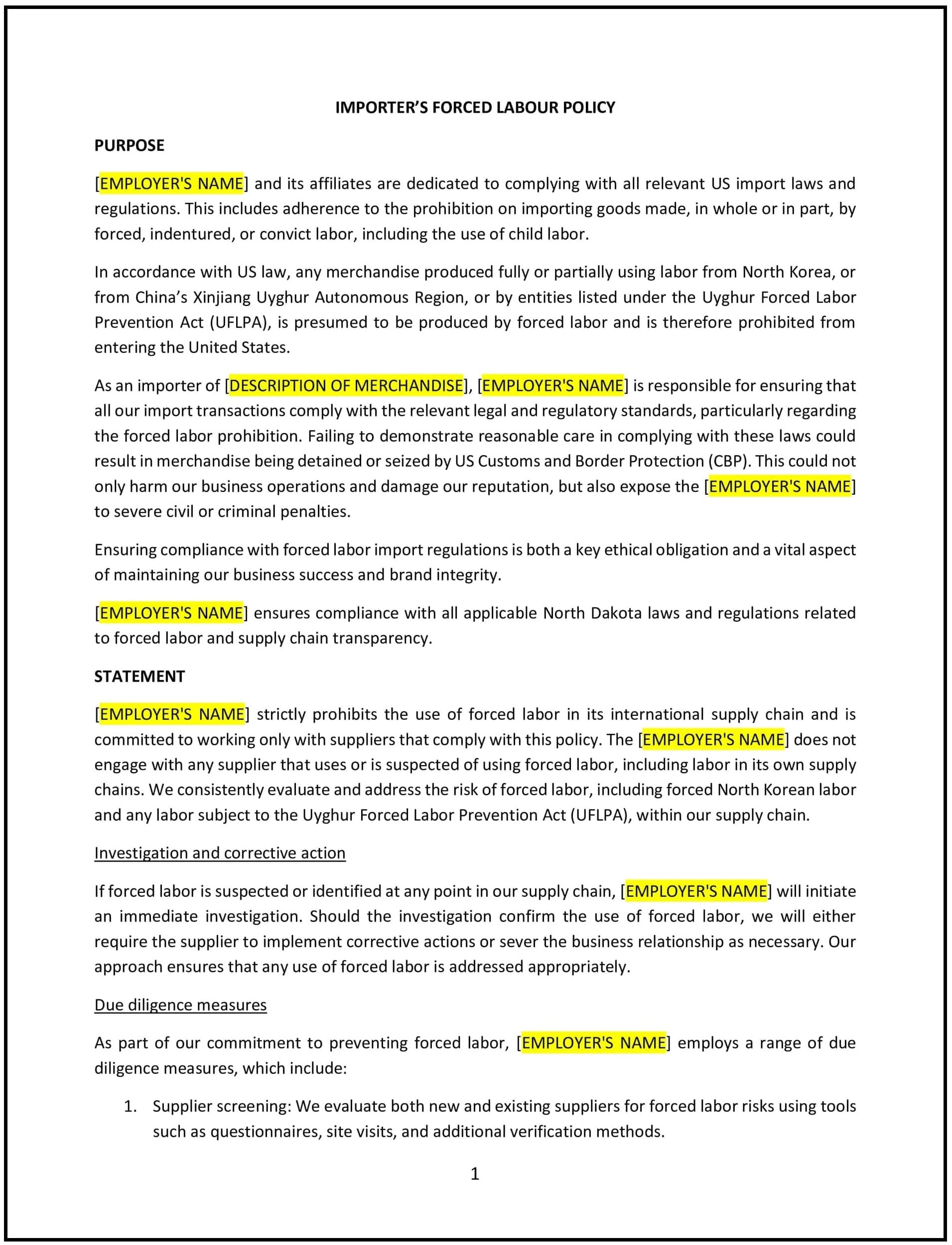Importer’s forced labour policy (North Dakota): Free template
Got contracts to review? While you're here for policies, let Cobrief make contract review effortless—start your free review now.

Customize this template for free
Importer’s forced labour policy (North Dakota)
This importer’s forced labour policy is designed to help North Dakota businesses prevent the use of forced labor in their supply chains. The policy outlines due diligence procedures, supplier accountability, and compliance with federal and international labor laws.
By implementing this policy, businesses can mitigate ethical and legal risks, promote fair labor practices, and protect their brand reputation.
How to use this importer’s forced labour policy (North Dakota)
- Establish supplier screening procedures: Require vendors to disclose labor practices and sourcing details.
- Implement due diligence measures: Conduct audits and risk assessments for international suppliers.
- Require compliance certifications: Ensure suppliers adhere to anti-forced labor standards.
- Set corrective action protocols: Define steps for addressing non-compliance.
- Provide employee and supplier training: Educate stakeholders on forced labor risks and legal obligations.
- Establish reporting mechanisms: Enable anonymous reporting of forced labor concerns.
- Review regularly: Update the policy based on changes in global labor laws and trade regulations.
Benefits of using this importer’s forced labour policy (North Dakota)
Implementing this policy provides several advantages for North Dakota businesses:
- Protects brand integrity: Demonstrates corporate commitment to ethical sourcing.
- Reduces legal risks: Helps businesses comply with U.S. import laws prohibiting forced labor.
- Enhances supply chain transparency: Promotes ethical sourcing and fair labor practices.
- Builds consumer trust: Aligns with socially responsible business practices.
- Reflects North Dakota-specific considerations: Supports local industries involved in import and trade.
Tips for using this importer’s forced labour policy (North Dakota)
- Conduct third-party audits: Verify supplier compliance through independent reviews.
- Require supplier contracts to include labor standards: Set clear expectations for ethical sourcing.
- Monitor high-risk regions: Identify suppliers in areas with known labor violations.
- Train procurement teams: Ensure staff can identify and report forced labor concerns.
- Adjust as needed: Update policies based on trade law changes and global supply chain developments.